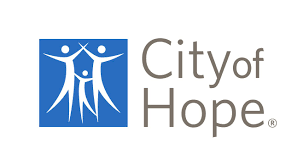Atebimetinib (IMM-1-104) in combination with modified chemotherapy (Gemzar plus Abraxane [gemcitabine/nab-paclitaxel]) demonstrated durable responses in first-line patients with pancreatic cancer, according to a news release from Immuneering Corporation.
“These exceptional data demonstrate the potential of atebimetinib plus [chemotherapy] to dramatically extend the lives of patients with advanced pancreatic cancer,” Ben Zeskind, co-founder and chief executive officer of Immuneering, said in the news release. “A 94% overall survival [rate] at six months is remarkable in first-line pancreatic cancer patients. Atebimetinib was designed to deliver exceptional durability and tolerability to a broad range of patients with different cancers, and it is deeply gratifying to see evidence of that playing out first in one of the most aggressive and deadly types of cancer. Our ultimate goal is to help cancer patients outlive their disease, and today’s announcement represents an important milestone on that journey.”
Glossary:
Overall survival: time from treatment start until death from any cause.
Progression-free survival: time during and after treatment that a patient lives without cancer growing or spreading.
Overall response rate: percentage of patients whose cancer shrinks or disappears after treatment.
Disease control rate: percentage of patients who have cancer shrinkage or stabilization after treatment.
Durable response: a long-lasting positive effect from treatment on cancer.
As of May 26, 2025, a 94% overall survival rate at six months was observed in patients with previously untreated pancreatic cancer who received atebimetinib at the 320 milligrams (mg) once-daily dose plus modified gemcitabine and nab-paclitaxel (34 patients). By comparison, the typical six-month survival rate for patients receiving standard-dose gemcitabine and nab-paclitaxel is 67%. Median overall survival had not yet been reached at the time of analysis.
Progression-free survival at six months was 72% in the same group, compared with the 44% benchmark for standard treatment. Median progression-free survival was also not yet reached. Among 36 response-evaluable patients treated at both the 240 mg and 320 mg dose levels of atebimetinib with modified gemcitabine and nab-paclitaxel, the overall response rate was 39% and the disease control rate was 81%. Many patients experienced deep, long-lasting tumor shrinkage, with several individual tumors becoming undetectable on scans.
“These data clearly establish atebimetinib’s potential as a more durable and better tolerated MEK inhibitor positioned to help patients both live longer and live better, with exciting potential opportunities in pancreatic cancer and a variety of other cancers,” Dr. Igor Matushansky, chief medical officer of Immuneering, said in the news release. “We look forward to advancing atebimetinib to a pivotal trial as rapidly as possible.”
Safety Data and Future Directions of Treatment
Atebimetinib continued to show a favorable safety profile when combined with modified gemcitabine and nab-paclitaxel. Most common side effects typically seen with standard chemotherapy were either mild or absent, with few severe side effects reported.
Based on these findings, the trial’s enrollment target for this treatment combination in newly diagnosed pancreatic cancer has been increased to approximatley 50 patients, according to the release.
These exceptional data demonstrate the potential of atebimetinib plus [chemotherapy] to dramatically extend the lives of patients with advanced pancreatic cancer.
Building on these new phase 2a clinical data, Immuneering plans several upcoming milestones for atebimetinib. Regulatory feedback on pivotal study plans is expected in late 2025, along with additional data from the phase 2a trial. The company also plans to launch a pivotal randomized trial of atebimetinib plus mGnP in first-line pancreatic cancer in 2026, as well as initiate additional combination trial arms that same year.
“The encouraging clinical data reported thus far for atebimetinib represent a potential new and significantly more durable treatment option for pancreatic cancer patients, for whom limited therapeutic options are currently available,” Dr. Vincent Chung, a professor in the Department of Medical Oncology and Therapeutics Research at City of Hope, and principal investigator of the phase 2a clinical trial, said in the news release.
“I have treated pancreatic cancer patients with atebimetinib who have experienced exceptional durability. Current standard of care therapies in pancreatic cancer can be associated with limited durability and severe side effects, leading to poor patient outcomes. We have not seen significant improvement in standard of care for decades, and there is an urgent need for more durable and better tolerated new treatments that help patients live longer,” Chung concluded.
Reference
“Immuneering Reports Positive Overall Survival Data for Atebimetinib (IMM-1-104) from Ongoing Phase 2a Trial in First-Line Pancreatic Cancer Patients.” Press release. Immuneering Corporation. June 17, 2025.
For more news on cancer updates, research and education, don’t forget to subscribe to CURE®’s newsletters here.






